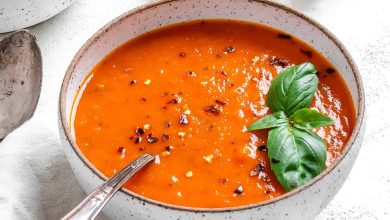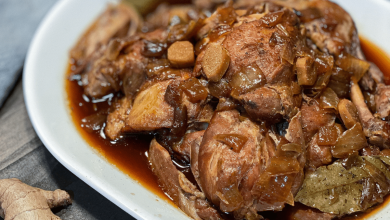African Supper
African supper is a diverse and broad category of meals that encompasses a wide range of culinary traditions and ingredients across the African continent. The cuisine varies greatly from one region to another due to the continent’s vastness and cultural diversity. Therefore, there isn’t a single “African supper” dish, but rather a rich tapestry of different dishes and flavors. Here’s a general overview:
History:
The history of African cuisine is deeply rooted in the continent’s rich traditions and history. It has been influenced by indigenous ingredients, as well as trade and colonization, which brought new ingredients and cooking techniques. Traditional African cuisine is characterized by the use of locally sourced ingredients like grains, vegetables, fruits, and various meats.
Components:
The components of an African supper can vary widely, but here are some common elements you might find in African dishes:
-
Staple Foods: Staple foods in African cuisine include grains like maize, rice, millet, and sorghum. In some regions, starchy tubers like yams and cassava are also essential.
-
Proteins: African suppers often feature a variety of proteins, including beef, poultry, lamb, goat, fish, and game meat. Vegetarian dishes with legumes and pulses are also common.
-
Vegetables: Leafy greens, okra, eggplant, and various root vegetables are frequently used in African cooking.
-
Sauces and Spices: African cuisine is known for its flavorful sauces and spices. Common seasonings include ginger, garlic, chili peppers, and a variety of herbs and spices. Palm oil, groundnut (peanut) sauce, and tomato-based sauces are commonly used.
Steps to Prepare:
The specific steps to prepare an African supper dish will depend on the recipe you choose. Here’s a general outline:
-
Gather Ingredients: Collect all the necessary ingredients, including grains, proteins, vegetables, and spices.
-
Preparation: Prepare the ingredients by washing, chopping, and marinating them as required.
-
Cooking: In many African cuisines, stews and one-pot dishes are prevalent. These involve simmering meats, vegetables, and spices together for a prolonged period to develop rich flavors. Alternatively, some dishes are grilled or roasted.
-
Serving: African suppers are often served with a staple base, such as rice, couscous, or fufu, and topped with the cooked meats and vegetables. Sauces and side dishes like plantains or cassava may accompany the meal.
Time Needed:
The time required to prepare an African supper can vary widely depending on the complexity of the dish. Some simple stews may be ready in under an hour, while more intricate recipes could take several hours. It’s essential to consult a specific recipe for precise cooking times.
To explore the world of African cuisine, you can look up recipes from specific regions, such as West African, North African, East African, or Southern African, to discover the unique flavors and dishes that each area has to offer.
Certainly, here are some general nutrition facts and health information related to African supper dishes:
Nutrition Facts:
-
Staple Foods: African suppers often include staple foods like maize, rice, and millet. These grains are a good source of carbohydrates, providing energy.
-
Proteins: The choice of protein can vary, but lean meats like poultry and fish are common. They provide essential amino acids and are relatively low in fat compared to red meats.
-
Vegetables: African dishes frequently feature a variety of vegetables, offering vitamins, minerals, and dietary fiber. Leafy greens, in particular, are rich in vitamins A and C.
-
Sauces and Spices: The use of spices and herbs in African cuisine adds flavor without adding excessive calories. However, some traditional sauces may contain palm oil, which is calorie-dense.
-
Portion Sizes: Be mindful of portion sizes, as traditional African meals can sometimes be hearty and substantial. Controlling portion sizes can help manage calorie intake.
Health Information:
-
Balanced Diet: African suppers can be part of a balanced diet when prepared with a variety of ingredients. Incorporating a mix of grains, lean proteins, and vegetables ensures a well-rounded meal.
-
Fiber and Digestive Health: The inclusion of whole grains and vegetables in African dishes provides dietary fiber, which is beneficial for digestive health.
-
Lean Proteins: Choosing lean protein sources like poultry and fish over fatty meats can support heart health and weight management.
-
Spices and Antioxidants: Many African spices and herbs are rich in antioxidants, which have potential health benefits, including reducing inflammation.
-
Watch for High-Calorie Ingredients: Some traditional ingredients like palm oil can be calorie-dense. Moderation in the use of such ingredients is advisable for those watching their calorie intake.
-
Cultural Variations: Keep in mind that African cuisine is diverse, and health aspects can vary from one dish to another. It’s essential to consider the specific recipe and cooking methods when assessing the healthfulness of a meal.
As with any cuisine, the overall healthiness of African suppers depends on the ingredients used, portion sizes, and cooking methods. Choosing a variety of nutritious components and practicing portion control can help you enjoy African cuisine as a part of a healthy diet.








